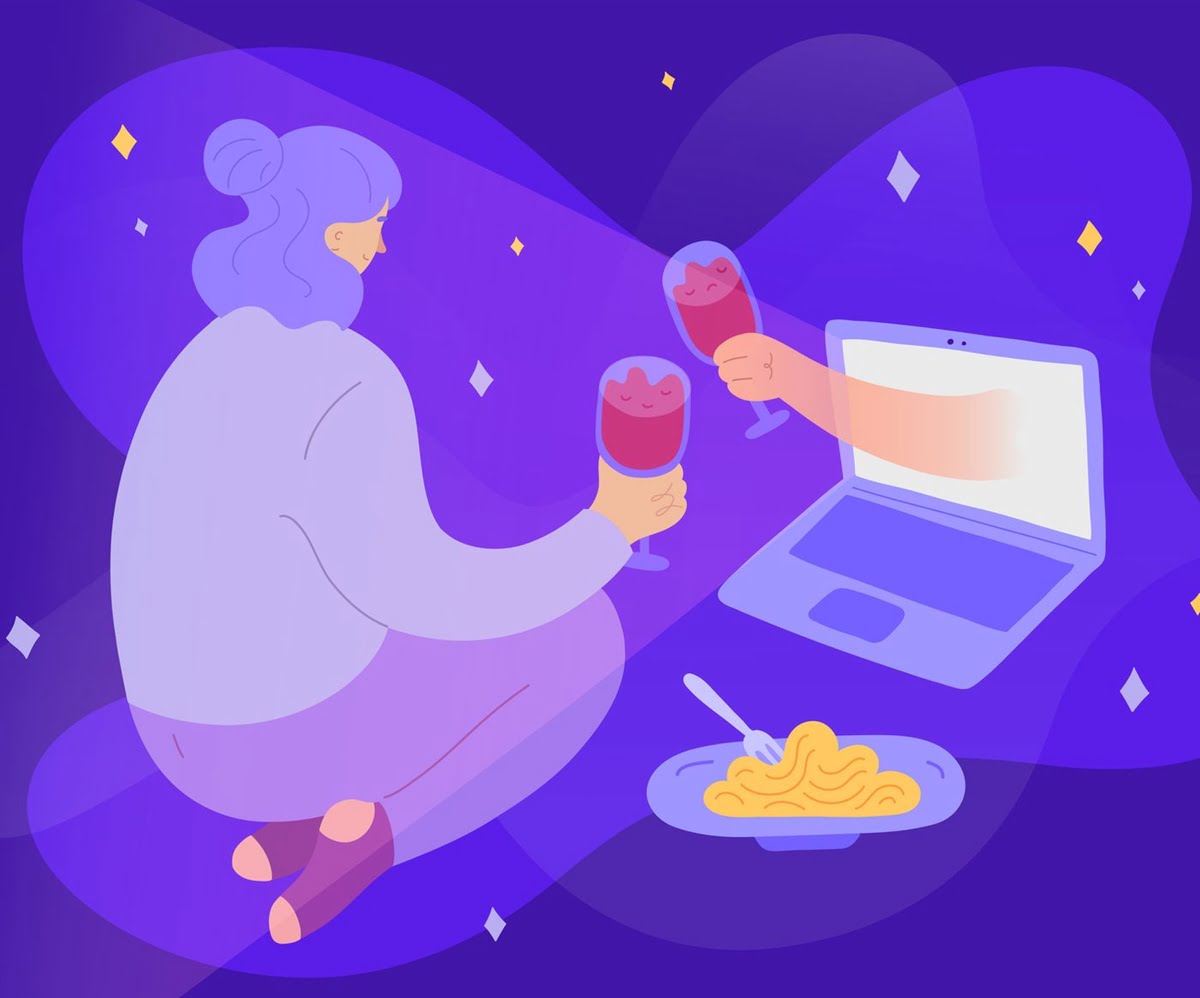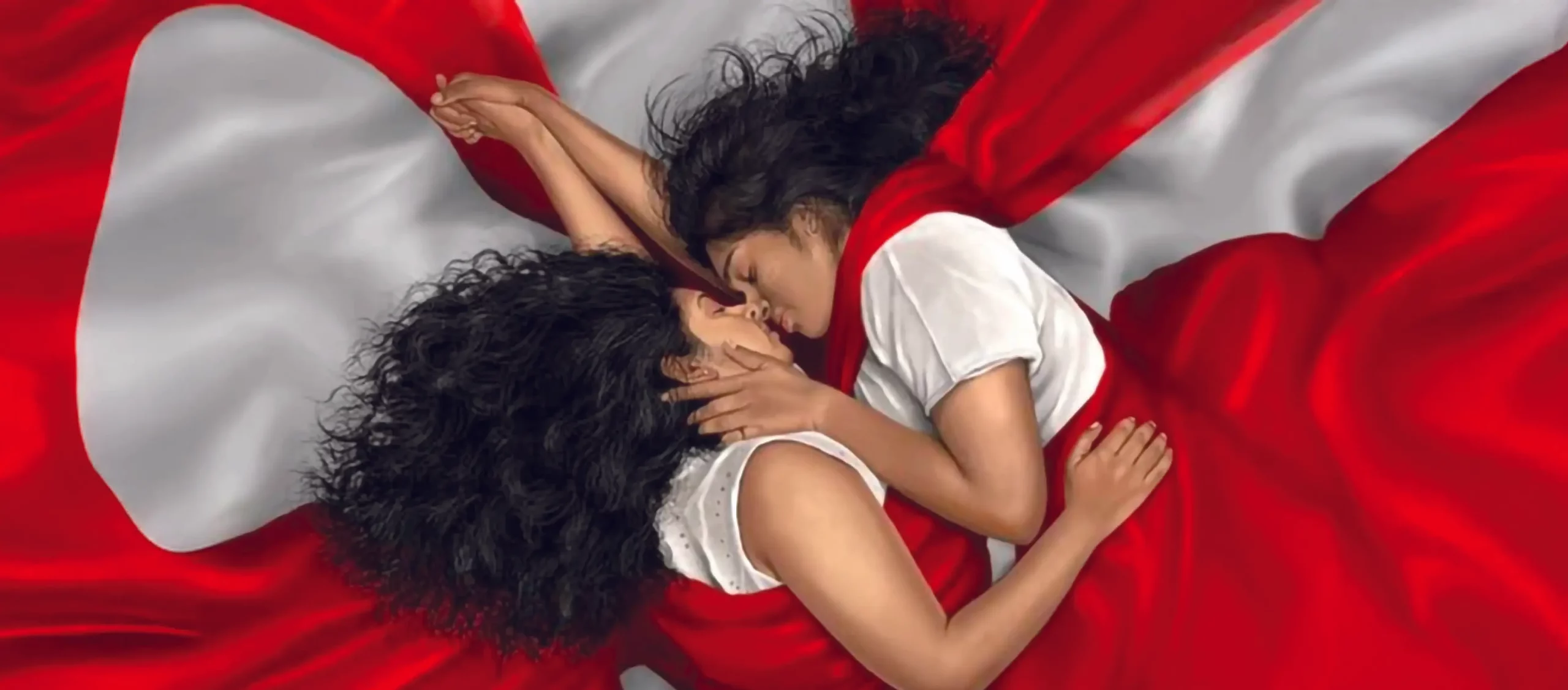Editor’s Note: FII’s #MoodOfTheMonth for August, 2021 is Digital Realities. We invite submissions on the many layers of experiences from the virtual world throughout the month. If you’d like to contribute, kindly email your articles to sukanya@feminisminindia.com
It was the year 2012, I received my first computer from my parents and a dial up internet connection. I had bought a webcam by saving pocket money. When everybody had fallen asleep, the eighteen-year-old me transformed into someone who can never exist in reality, a projection of my deepest desires, a personification of the cis-het male fantasy, a ‘dream girl’, in the world of internet chat rooms and online chat websites like Omegle. During those days, one could enter these spaces by keeping their videos off, and I was one of them. My feminine voice tricked men into thinking that am a cis woman. I seduced them, lured them to believe that I am their ultimate fantasy. They orgasmed as they heard me talk ‘dirty’, they wanted more…
This was a moment of euphoria for me, I felt affirmed, my womanhood celebrated. I started living two lives, many lives. The one I lived in reality was full of shame, fear and dysphoria. I started putting up a facade that I was happy, a pleasant college going kid. But from the inside I felt detached, unexcited in the real world. I would wait for the day to end, for the world to fall asleep, for the light to dim. In the dark corner of my room, I entered a parallel world, a dimension where I could take any form, conquer any man’s dream.
Also read: As You Are: A ‘No Pressure’ Dating App For LGBTQIA+ Persons
Exciting opportunities had started emerging in real life. I got exposed to feminism, queer and trans* rights. My family of choice grew closer, stronger and fuller. I started living life once again. I found acceptance, love and joy in the reality I so detested. I started seeing hope of not just surviving but of thriving. I started evaluating my actions and my ways of navigating in certain online spaces. Meanwhile, I also started feeling that I had misled so many people, led them to believe in something that I was not. I started developing a strong, overpowering and overburdening guilty conscience. I started internalising the fact that I am fraud and without a moral compass. I heard so may narratives of how men online trick women and take advantage of them. I started feeling that I am like those men. I decided that I would disclose to all the men I talk online about my transness. And needless to say, it was a terrible idea. The same space I thought I owned, became a vicious monster. My sweet escape pricked me like a thousand venomous thorns. From trans* negative slurs to accusing me of fraud, all this was too much to take. My disclosure changed my world. I left, resolute that I will never come back.
Almost ten years have passed since then and I haven’t ventured back into those spaces. I did not need to, want to, or even could. In all the years that went by, I have often questioned myself, introspecting upon whether I was actually wrong. And yes, I do have the answer now. I now realise that I have not done anything that deserved the attacks, slurs, pain and hurt that I did.
Marginalised folks are often held accountable for doing what they have to do to survive. The onus of being right in a world which refuses to acknowledge their presence let alone allow them any happiness is not on them.
Marginalised folks are often held accountable for doing what they have to do to survive. The onus of being right in a world which refuses to acknowledge their presence let alone allow them any happiness is not on them. I have always grown with a deep sense of guilt that something is wrong with me and that can never be fixed. I was constantly told that I can never be who I am. My dysphoria was heightened by the world I lived in, by constantly reminding me that what I looked like is not what I claim to be. I was tired and I wanted to live, to find joy, to be accepted. I took immense amount of risk in doing what I did, and yes, I did find euphoria. I am not ashamed of it.
One argument that I had with myself was the fact I shouldn’t have lied. But did I? What was my lie? Are cis people demanded to disclose their cisness? Is it told to them that “you have hidden your cisness”? The answer, both long and short is plainly, unarguably no. Then why am I answerable? Why does my transness needs a “disclosure”? I have never hidden the fact that I am a woman, and the fact I am trans* does not change that. Then what fraud did these men accuse me of?
Years later, the lockdown and the pandemic led me to once gain explore these online chatting websites. So much has changed. One could no longer keep their cameras off to enter these sites. This time I decided to go in with pride and not shame. And yet again, I found another gust of unexpected excitement. Thousands of men spoke to me only because I was trans*. Nothing more, nothing less. They fetishised my trans* body, peaked at me from the darkness of their own rooms, ogled at what they in real life cannot even dream of doing. I stand with pride as they look at me with guilt and shame, afraid of their own sexuality, fearful that that their masculinity will crumble at the slightest discovery.
As a feminist, I have asked myself many times, am I serving the cis-het male gaze on the Internet? In short, yes. But then, what needs to change for me to stop this gaze? Am I to blame to get the most out a system which is designed to oppress me or is it the system that needs questioning?
As a feminist, I have asked myself many times, am I serving the cis-het male gaze on the Internet? In short, yes. But then, what needs to change for me to stop this gaze? Should I restrict myself of getting the thrill, pleasure and adventure out of people who reduces me to a mere object, a projection of their fantasy or extinction of the gaze in itself? Am I to blame to get the most out a system which is designed to oppress me or is it the system that needs questioning?
About the author(s)
Riju Banerjee is 27 years old and works at The YP Foundation. She is a Teach for India alumni who is passionate about human rights, mental health, social emotional learning, writing, film making and intersectional feminism. She is an educator who strongly believes in inclusive education and is an advocate of children's voices and agency.




